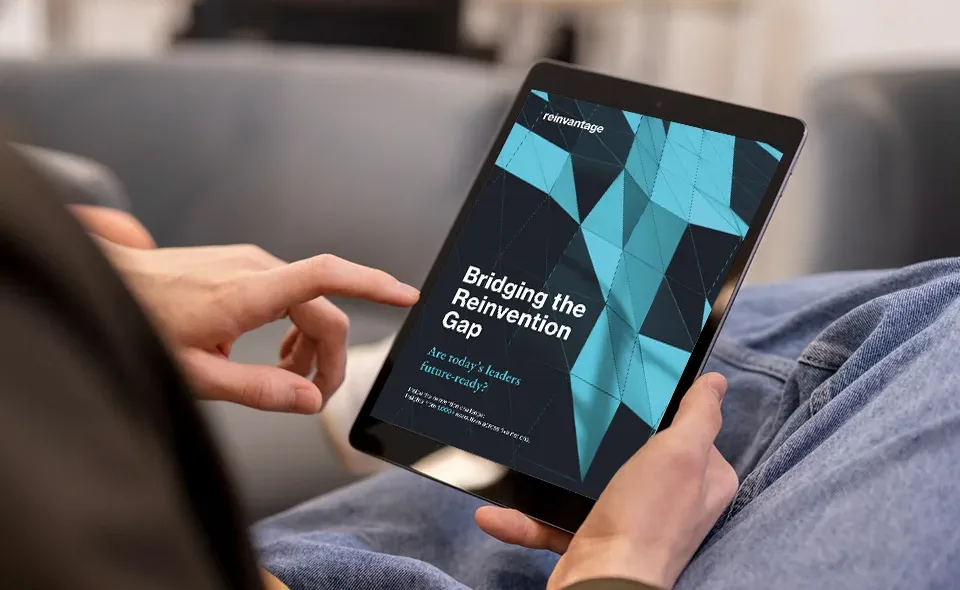Corporate Europe has developed a peculiar talent: the ability to diagnose its own terminal illnesses whilst remaining curiously unable to swallow the prescribed medicine: reinvention.
A comprehensive Reinvantage survey of over 1,000 business leaders across five strategically chosen economies reveals a continent where transformation is discussed with the earnestness of a parish council meeting yet executed with all the urgency of continental drift.
The research, spanning Poland, Romania, Türkiye, Ukraine and the UK, exposes European capitalism’s most inconvenient truth. Whilst 45 per cent of global chief executives doubt their companies will survive the next decade without fundamental change, European enterprises remain trapped in what management consultants euphemistically term ‘strategic deliberation’—a polite euphemism for paralysis by analysis.
A mere 12.9 per cent of surveyed executives qualify as ‘Reinvention Leaders’, those rare specimens bold enough to reshape their business models before market forces apply the requisite pressure. The remainder is made up mostly of ‘Cautious Adapters’, a designation that sounds prudent until one considers that in today’s economy, caution has become the most reckless strategy of all.
When geography surprises
The survey’s pecking order delivers some delicious ironies. Türkiye emerges as Europe’s transformation champion, scoring 56.2 per cent on overall reinvention readiness—a result that presumably owes something to the nation’s long experience of economic volatility making boardroom stability seem rather quaint. Turkish businesses demonstrate particular competence in implementation, the very dimension where their other European cousins stumble most spectacularly.
Britain follows at 55.3 per cent, suggesting that Brexit’s upheavals may have concentrated minds wonderfully on the virtues of adaptability. More remarkable still is Ukraine’s bronze-medal performance at 54.5 per cent—proof, if any were needed, that nothing sharpens corporate reflexes quite like existential threat. Whilst Western boardrooms debate digital transformation over lengthy lunches, Ukrainian executives have learnt to reinvent their businesses between air-raid sirens.
Romania (53.6 per cent) and Poland (51.7 per cent) complete the rankings, with Poland’s trailing position offering a sobering reminder that economic heft provides no immunity from transformation torpor. The narrow spread between first and last place—a mere 4.4 percentage points—suggests that when it comes to reinvention readiness, geography matters rather less than temperament.
The strategy-execution schism
European business culture’s most damning characteristic emerges in what researchers dryly term the ‘anticipation-execution gap’. Companies excel at spotting trouble on the horizon—scoring above 54 per cent on average in anticipation capabilities. They craft sophisticated strategies, with design capabilities reaching an impressive 56.7 per cent in the best-performing markets.
However, when the moment arrives to translate PowerPoint into practice, performance collapses to a less impressive 50.8-53.6 per cent range. European businesses, it seems, have mastered the art of the strategy seminar whilst remaining mysteriously baffled by the mundane business of actually doing things.
This disconnect recalls nothing so much as the Bourbon monarchy’s approach to reform: European executives can see everything, understand everything, yet somehow learn nothing when it comes to execution. They possess the analytical sophistication to diagnose their ailments with clinical precision, then display all the urgency of a Victorian invalid when it comes to treatment.

Risk aversion as continental affliction
The survey identifies 60.6 per cent of European business leaders as ‘Risk-Averse’—individuals who demonstrate consistent mediocrity across all dimensions of change readiness. This proportion remains stubbornly consistent across all five countries, suggesting that risk aversion operates less as a management choice than as a kind of continental genetic predisposition.
Such conservatism served admirably during the post-war reconstruction, when steady incrementalism generated decades of prosperity. In today’s environment, where 75 per cent of businesses must pivot more frequently, this same caution resembles nothing so much as bringing a slide rule to a quantum computing contest.
The research catalogues eight distinct reinvention personas, from visionary architects who design brilliant strategies yet somehow never manage to build anything, to opportunistic executors who implement others’ grand plans with workmanlike efficiency. Rarest of all—representing just 2.4 per cent of leaders—are the ‘Transformers’ who excel across all dimensions. Their scarcity explains rather more about European business performance than most executives would care to admit.
The female advantage
One finding punctures conventional boardroom wisdom with characteristic precision. Female executives demonstrate superior reinvention readiness, scoring 1.3 percentage points higher than their male counterparts—a statistically significant margin that persists across the entire regional sample.
This may suggest that collaborative leadership styles preferred by many female leaders may serve rather better during periods of upheaval than the command-and-control preferences of their male colleagues. The finding carries uncomfortable implications for succession planning, particularly given that 60-70 per cent of change initiatives fail outright.
Age, meanwhile, proves utterly irrelevant to reinvention readiness—a discovery that should give pause to every executive who has ever muttered about ‘digital natives’ or planned succession strategies around generational assumptions. Capability, it transpires, flows from experience with change rather than familiarity with TikTok.
Disruption’s compound interest
The survey arrives as multiple forces converge with the inexorability of continental drift, yet the acceleration of a Tesla. Artificial intelligence threatens to displace 300 million jobs worldwide whilst simultaneously creating work categories that did not exist five years ago. Environmental regulations evolve from voluntary corporate social responsibility initiatives to mandatory compliance requirements that could determine market access. Geopolitical tensions reshape global supply chains with state-based armed conflict ranking as 2025’s primary global risk.
In this context, European businesses’ implementation deficit assumes the character of a slow-motion catastrophe. Companies may spot these changes with the precision of Swiss timekeepers and design responses with the elegance of French engineers, yet lack the execution capabilities to act swiftly enough. The result resembles watching a chess grandmaster deliberate over the perfect move whilst the board catches fire.
Ukrainian companies, stripped of the luxury of gradual adaptation by rather more pressing concerns, now produce the highest proportion of reinvention leaders precisely because external circumstances eliminated comfortable incrementalism as a viable strategy. Their Western counterparts might consider this lesson before circumstances render the choice academic.
Beyond comfortable incrementalism
European capitalism finds itself caught between aspiration and execution, between recognising disruption and responding to it. This represents more than a tactical hiccup—it suggests a fundamental mismatch between the velocity of external change and the stately pace of internal adaptation.
The implications stretch beyond individual companies to continental competitiveness. As American technology giants demonstrate scaling capabilities that would have seemed fantastical a decade ago, and Chinese manufacturers adapt to new requirements with impressive alacrity, Europe’s measured approach to change may prove as obsolete as its medieval guild system.
However, our research reveals grounds for cautious optimism—itself a very European sentiment. The vanishingly small percentage of outright traditionalists (3.8 per cent) suggests that businesses universally recognise change imperatives. The challenge lies not in awareness but in building the implementation capabilities to act upon that awareness before competitors render such action moot.
Companies that master this transition will discover competitive advantages as sustainable as they are hard-won. Those that persist in strategic deliberation may find themselves composing elegantly worded explanations for stakeholders about why change proved so difficult to execute despite being so easy to anticipate.
The full report, including detailed country analyses and strategic recommendations, is available here.







